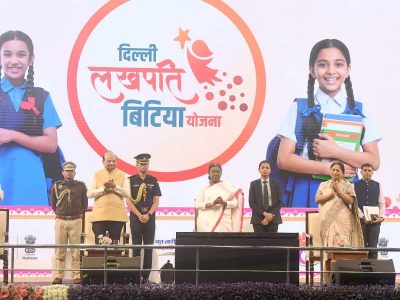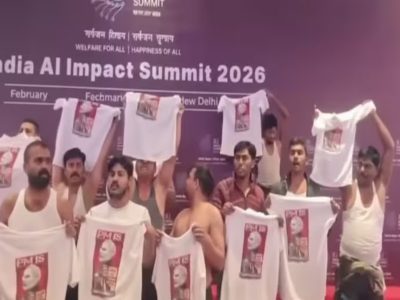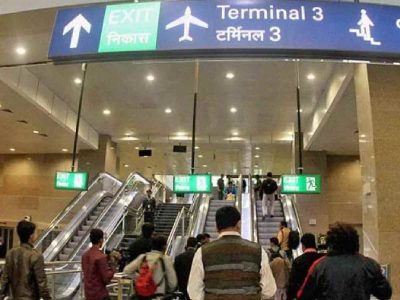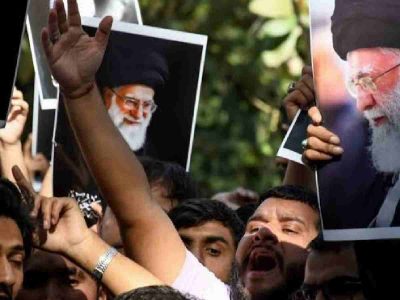Delhi Election Results: As far as the reserved constituencies are concerned in the 2025 Delhi polls, the BJP has whisked away a major chunk of the 12 Scheduled Caste (SC) reserved constituencies from the AAP.
To put matters into perspective, in 2020, the Arvind Kejriwal-led AAP secured all of the constituencies in 2015 and 2020. However, this time around, they could only secure eight of the reserved constituencies while the BJP won four of the reserved seats.
The reserved constituencies include Sultanpur Majra, Mangolpuri, Karol Bagh, Patel Nagar, Madipur, Deoli, Ambedkar Nagar, Trilokpuri, Kondli, Seemapuri, Gokalpur, and Bawana.
Out of these, AAP won Sultanpur Majra, Karol Bagh, Ambedkar Nagar, Kondli, Patel Nagar, Gokalpur, Seemapuri, and Deoli. BJP, on the other hand, won Bawana, Seemapuri, Madipur and Mangolpuri
Since 2015, this is the first time that the BJP has managed to win any reserved constituency.
The Dalit community constitutes over 16% of Delhi’s population and plays a significant role in determining the verdict in about two dozen seats, including the reserved seats.
Focused outreach
The chief of the Delhi BJP SC Morcha, Mohan Lal Gihara, said: “We have secured victory in four out of the 12 reserved seats—our best performance since the 2015 assembly elections.”
“Beyond the reserved constituencies, we were assigned 30 SC-dominated seats—those with a 17% to 44% Scheduled Caste population—by the central leadership. Out of these, we won 18, which is a significant achievement,” he said.
Gihara attributed the BJP’s success to its focused engagement with the Dalit community, involving leaders, ministers, and organisational workers from within the community itself. “We conducted Swabhimaan Sammelans and held discussions with key Dalit leaders, which played a crucial role in securing our victory in Delhi,” he added.
He added that outreach campaigns through SC workers were conducted in the slums and unauthorised colonies of 30 identified constituencies in the months leading up to the elections.
“Vistaraks (expanders) in all these constituencies were involved in focused outreach among community members. The Vistarak further deputed 10 Dalit youths at each polling booth for person-to-person contact in various localities and residential areas in these constituencies,” Gihara said.
Gihara said that the Vistarak was then tasked with identifying over 5,600 polling booths to engage with voters in the area.
“The aim was to explain the work done for the community by the Modi government and the ‘failures’ of the AAP in its 10 years in power, involving a network of over 18,000 active workers,” he said.
Freebies, welfare politics, and the battle for marginalised voters
The election campaigns this time largely revolved around promises of freebies, along with issues like Yamuna pollution and corruption. However, the Aam Aadmi Party (AAP) also targeted the Bharatiya Janata Party (BJP) over Union Home Minister Amit Shah’s alleged controversial remarks on Babasaheb Ambedkar. AAP even released an AI-generated video depicting Ambedkar “blessing” its national convenor, Kejriwal.
Meanwhile, the Leader of Opposition in the Lok Sabha, Rahul Gandhi, questioned both the AAP and BJP’s commitment to the Constitution and the rights of marginalised communities. Speaking at the “Jai Bapu-Jai Bhim-Jai Samvidhan” public meeting in Northeast Delhi’s Seelampur last month, he challenged their stance on these critical issues.
Reserved constituencies, which have a significant number of slum clusters, have traditionally been a stronghold for AAP, due to its welfare-driven policies. Previously, slum dwellers were seen as Congress supporters, especially during former Chief Minister Sheila Dikshit’s tenure. However, AAP gained their trust in 2013 and 2015 by introducing key initiatives such as mohalla clinics, subsidised power and water bills, and improvements in slum infrastructure.
Housing and slum issues shift voter loyalty
The BJP had carried out intense outreach efforts ahead of the 2025 assembly elections. The party’s Delhi unit launched ‘pravas’ events, where leaders and workers stayed overnight in slum areas to engage with residents and understand their concerns. The BJP also promised to prioritise slum dwellers’ housing needs, vowing to allot homes in its very first cabinet meeting if voted into power.
Also Read: Delhi Assembly election 2025: How Purvanchali votes became dominant factor in AAP’s defeat
Additionally, the party accused AAP of failing to distribute 8,000 ready-to-occupy pucca houses to eligible beneficiaries.
Thus, owing to most of these constituencies being based around unauthorised colonies and JJ clusters, the lack of housing became a major issue of contention.





